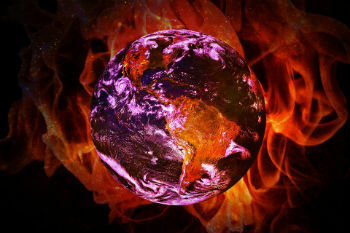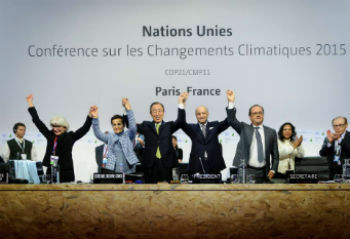The greenhouse effect and global warming are two related environmental phenomena.
Both are on the agenda for discussions of climate agreements and are issues that need action from all countries in the world, especially the most polluting.

Differences between the Greenhouse Effect and Global Warming
Confusion between the terms greenhouse effect and global warming is very common. They are not equal processes. However, they are related.
Now understand the difference between the two phenomena:
O greenhouse effect it is a natural phenomenon that guarantees the proper temperature for life on Earth. It consists of a layer of gases that surrounds the planet.
We can compare the greenhouse effect as a "blanket" that wraps the Earth and keeps it at a temperature suitable for life.
However, in recent decades, the emission of polluting gases, resulting from human activities, increased the concentration of these gases in the atmosphere.
As a result, the gas layer became thicker, making it difficult to disperse solar radiation and causing greater heat retention.
It is precisely this retention of heat that caused the increase in temperature on Earth, the so-called global warming.

How the Greenhouse Effect and Global Warming Work
O global warming it is a climatic phenomenon that consists in the increase of the average temperatures of the planet and of the waters of the oceans. It is the result of the intensification of the greenhouse effect.
In short, the greenhouse effect is a natural process that is intensified by human action and causes global warming.
Learn more about Climate changes.
Causes
The intensification of the greenhouse effect and the emergence of global warming are caused by the emission of gases called greenhouse gases. The main one is carbon dioxide (CO2).
The main activities that emit greenhouse gases are:
- Logging;
- burns;
- Burn of fossil fuels;
- Industrial activities.
With the objective of reducing the emission of polluting gases, in 1997, several countries signed the Kyoto Protocol.
Consequences
Scientists believe that the increase in the Earth's average temperature will result in serious consequences, including:
- Melting of polar ice caps;
- Highest frequency of natural disasters like hurricanes, floods and droughts;
- Change in food production;
- desertification;
- Flooding of coastal cities;
- Species extinction.
Also read about:
- Paris Agreement
- Enem geography: subjects that fall the most



